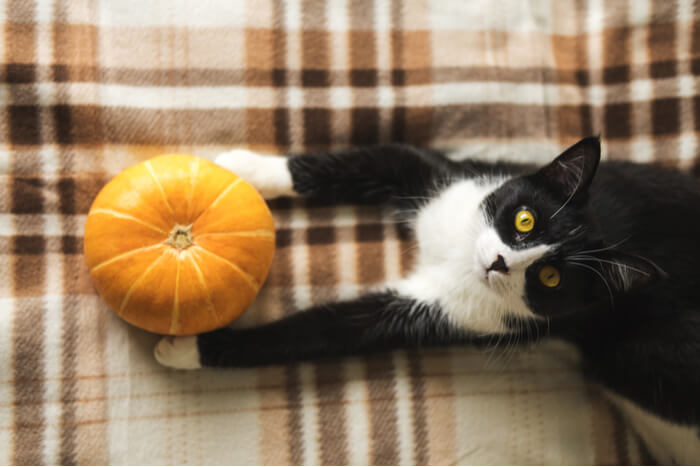
From time to time, we like to give our cat a treat that is tasty and good for them. Fortunately, pumpkin is a safe and healthy treat that offers several health benefits.
In this article, we’ll go over the facts about pumpkin for cats, including pumpkin’s health benefits, safety, and more.
Can Cats Eat Pumpkin?
The answer to this is yes! Pumpkin is not toxic for cats and they can eat pumpkin, but they shouldn’t eat too much of it on a regular basis.
When feeding pumpkin to your cat, you should not add any added sugar or spice to the pumpkin as only fresh pumpkin is safe for cats.
Benefits of Pumpkin for Cats
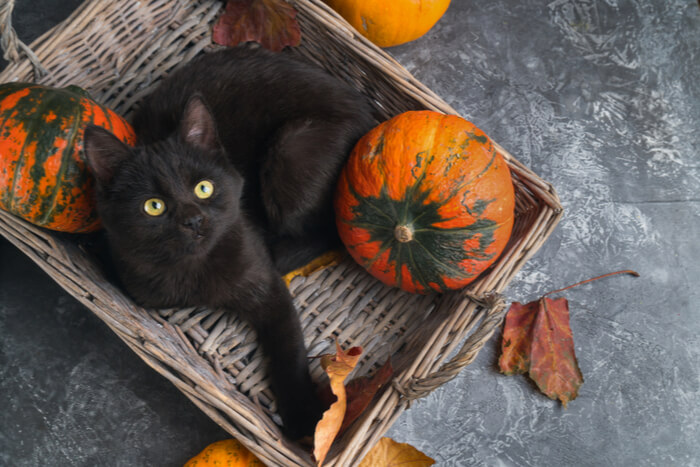
Nutrient-rich with plenty of moisture and a touch of beneficial fibre, pumpkin has benefits for cats with constipation, diarrhea, and more.
Firstly, pumpkin is filled with lots of valuable nutrients. These are beneficial for various parts of your cat’s body. Here’s a short summary of how the nutrients in pumpkin can benefit your cat:
- Vitamin A will help your cat maintain a healthy immune system and good vision
- Alpha-caroteneis an antioxidant that can help prevent damage to cells
- Vitamin C can help in enzyme reactions.
- Vitamin Eis a fat soluble antioxidant
- Calcium helps to support bones and teeth
- Iron contributes to cellular respiration and hemoglobin production
- Lutein aids in the overall health of the eyes, skin and coat
There are some benefits that may be seen from feeding pumpkin to cats. If you have any concerns about feeding pumpkin to your cat, then please speak to your veterinary surgeon for more advice.
Pumpkin for Cats With Diarrhea
Pumpkin contains soluble fiber. This soluble fiber helps to absorb excess water in the digestive tract, which can aid in reducing or relieving diarrhea.
Pumpkin is also full off vitamin A, C and E as well as potassium and iron. These along with the fiber content can help to bulk out the stool and absorb water from the digestive tract. Pumpkin is safe and effective but if the diarrhea persists then you should seek advice from your vet.
Pumpkin for Cats With Constipation
The combination of fiber and moisture in pumpkin can be of great benefit for cats with constipation. It helps to create bulk, which will stimulate bowel movements.
One tablespoon added to the cat’s normal food in order to ease constipation should help. It is vital to remember that constipation often leads to dehydration so always make sure that your cat has plenty of fresh water available. If the constipation does not resolve, seek veterinary advice .
Read More: Best Cat Food For Constipation
Pumpkin for Weight Control
Again, pumpkin is high in fiber. Fiber in a meal provides bulk, giving the cat a feeling of fullness without the calories. But as with all dietary plans, you should first consult your vet about your cat’s specific needs.
Also in order to use pumpkin to help promote weight loss, it is recommended substituting a portion of your cats food with pumpkin as pumpkin is low in calories but had a good nutritional source to keep our cats happy and healthy.
Pumpkin for Cats With Hairballs
Thanks to its moisture and fiber content, pumpkin can help to ease hairballs in cats in the same way that it can ease constipation. Pumpkin has a laxative affect so it will help the hair move through the digestive tract instead of a hairball.
As we know cats are frequent groomers, and their rough tongue catch loose hair, which is swallowed. While some hair passes through the digestive tract, some get stuck in the stomach and form a hairball.
Seeds for Urinary Tract Health
Pumpkin seeds are high in essential fatty acids and antioxidants, which are great for the skin and fur for our cats. The seeds from the pumpkin are believed to support urinary health. If you choose to serve your cat pumpkin seeds, make sure that they are unseasoned and roasted before serving.
Are There Any Negatives To Feeding Cats Pumpkin?
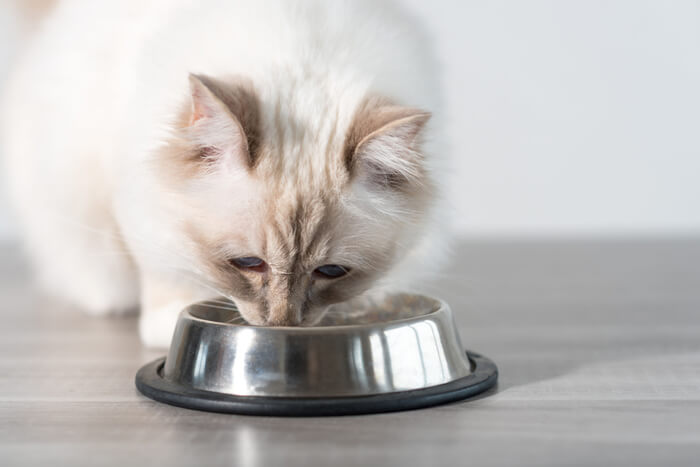
While pumpkin is generally safe for cats, too much pumpkin or eating raw pumpkin can cause GI distress.
Pumpkin is an easy and safe additive, but eating raw pumpkin could lead to vomiting in our cats. For that reason, it’s best to cook pumpkin first before feeding it to your cat. Also, too much pumpkin could cause diarrhea.
If this occurs, feed a smaller amount. If diarrhea continues when feeding the pumpkin, it is possible that your cat can not tolerate pumpkin.
There are certain parts of pumpkin which you should not feed to your cat. These include:
- The stem: Pumpkin stems are prickly and rough on the digestive system, potentially causing a gastrointestinal problem.
- Pumpkin skin: Cats may not digest pumpkin skin well.
- Pulp: Avoid feeding the soft gooey material in the center of the squash.
- Raw pumpkin: As mentioned earlier, raw pumpkin is unsafe for cats.
- Canned pumpkin pie filling: In contrast to plain canned pumpkin, pie filling is loaded with additives. Additives like fillers, spices, or sugar are not safe for your cat’s digestive system.
How to Safely Give Your Cat Pumpkin?
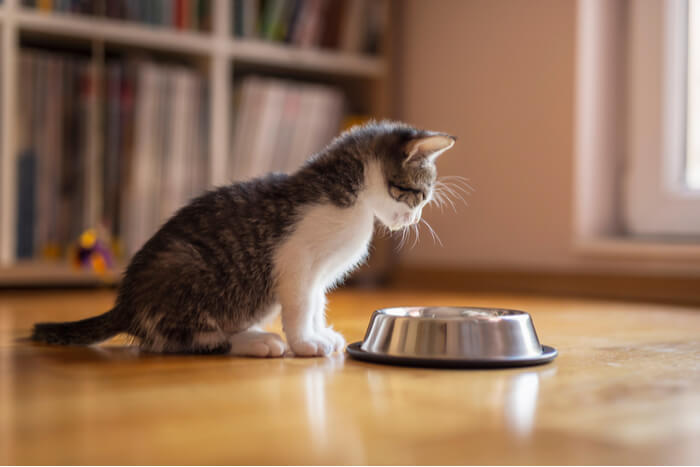
To safely give your cat pumpkin, incorporate small amounts of it into their diet.
It is advisable to start feeding an adult cat with half a teaspoon of pumpkin daily. You can then increase this to a teaspoon after a week or so. Mix the pumpkin into your cat’s meals or, if your cat enjoys the flavor, serve it as a standalone treat.
- Canned pureéd pumpkin is an excellent option, provided that it is made without additives, fillers, spices, or sugar.
- Fresh pumpkin that has been baked is good for cats. Remove the seeds and allow the flesh to cool before feeding to cats.
Pumpkin has some great health benefits, but it’s not for every cat. Like us, cats have varying taste preferences. Some cats might like the taste of pumpkin and some might not.
Additionally, it’s not a solution to health problems. If your cat is unwell, ask your veterinarian for advice.
Frequently Asked Questions
How much pumpkin can I give my cat?
As pumpkin has so many health benefits, it can be very tempting for cat parents to give too much of this fruit to their cat. But it is advisable to limit the portions so as to maximize its health benefits.
Is pumpkin good for cats?
For those who don’t get enough fibre in their diet, pumpkin can be good for cats. It can help to ease both diarrhoea and constipation.
Can cats eat pumpkin every day?
It is important to introduce pumpkin to your cat's diet gradually. By giving your cat very small amounts of pumpkin at a time, you can see if they will tolerate the pumpkin and not experience any digestive upset. After a gradual introduction, cats can eat pumpkin every day.
Can I give my cat too much pumpkin?
It is very rare that pumpkin will upset a cat’s stomach, but excessive pumpkin can possibly cause diarrhoea. About a teaspoon of pumpkin per day is recommended, but if you’re concerned about safety, ask a veterinary surgeon how much pumpkin to give your cat.
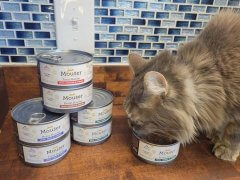
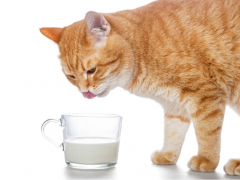
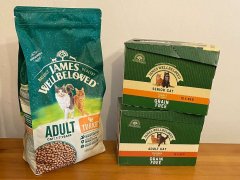
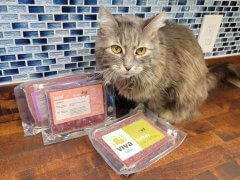
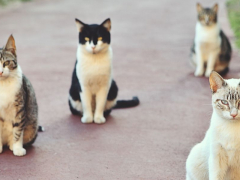
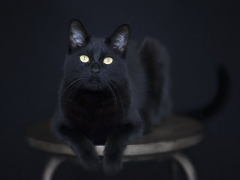
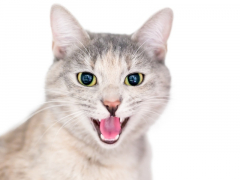
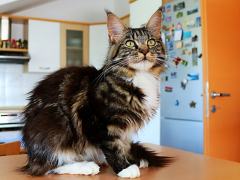
Hi! Your article about feeding cats pumpkin was helpful and informative. I have a big guy with very dense fur, who gets hairballs. Tonight, he was begging to eat some of my butternut squash (pumpkin by another name). He never begs normally, so I gave him some, thinking it may be something he needs. He went crazy, eating every speck I could scrape off the skin! He probably at 3 or 4 Tablespoons before it occurred to me to check for dosage reccomendations! We will see if there is a mess tomorrow… BTW, I never add salt, but if you do, please don’t give your kitty any leftovers! We cooked ours in the microwave on a plate, then topped it with a (fake) sausage, rice, zucchini, & cheese mixture and reheated in the oven. I ate all the stuffing stuff & most the base. So freaking good – for all of us!
What about the tiki cat with pumpkin in it? Is it ok to feed them this on a daily basis? My cat seems to get like maybe hiccups? Is this possible? It happens everytime he eats.
Hey Stacey! Tiki cat uses pumpkin in several of their recipes, but any of them should be fine on a daily basis! Just make sure if it’s your cat’s only diet that it’s a complete and balanced formula, not just a meal topper. As for the hiccups, that sometimes happens when a cat eats too much or too fast. You could try giving him smaller, more spaced out meals. Or just give each meal in several portions, waiting for him to finish one before giving him another spoonful.
I wondered if it’s okay to replace pumpkin by other winter squashes (butternut, buttercup, acorn squashes, for example). I’d also heard that sweet potato was okay to give cats to address constipation. Is that okay? thanks for this post
Hi Seth, that’s a great question. Pumpkin can benefit cats with constipation for a few reasons, particularly fiber content. Other types of squash have the same qualities, and I’ve heard of people using various types of winter squash to alleviate constipation in cats. However, I wouldn’t be so enthusiastic about sweet potato due to its higher glycemic load.
What brand is good for a canned pumpkin to feed my cat?
Any regular canned pumpkin without sweeteners. Store brand is a cost-effective option.
Thanks for the reply! Just to be clear I can buy any canned pumpkin at Wal Mart, Target etc..that is for humans just so long as it doesn’t have any sweeteners, etc?
I use Weruva Pumpkin Patch Up for my kitties. It’s just pumpkin puree and water. You can find it at your closest holistic pet food store. It works well for my babies and my cats seem to like it. One of my cats will lick it by straight off the spoon!
Hello! Thank you for this post! I have recently switched my two cats to one of your recommended high protein, grain-free dry food. They eat mostly wet food, but still like the dry. Both cats have recently experienced diarrhea for the first time since I adopted them, so I had a can of plain 100% pumpkin that I’m experimenting with mixing it into their wet food. I am wondering if there is any known correlation between grain-free high protein food and increase of diarrhea or constipation? Thank you for all your valuable research!!
Liz, I have heard of cats having this type of reaction when they switch to a higher-protein diet. It may be because the switch was too rapid, or your cats may simply be unaccustomed to this type of diet. Pumpkin and a probiotic supplement (especially S.boulardii) can help. If you see any other symptoms of illness or if the diarrhea doesn’t go away after a couple of days, I’d recommend seeing a vet.
Thanks for your response! They really seemed to love the Solid Gold chicken recipe, and we’re having no issues with it for a while until I went out of town and they ate more of it. I am wondering if it has to do with the potato in that recipe. They seem to have recovered for now, and I’ve just stopped with Solid Gold, and switched to Dr. Elsey’s with no issues so far. Im using the dry food more as a “treat” now than a full meal. I’ll definitely look into the probiotics you mentioned. Thanks again. 🙂